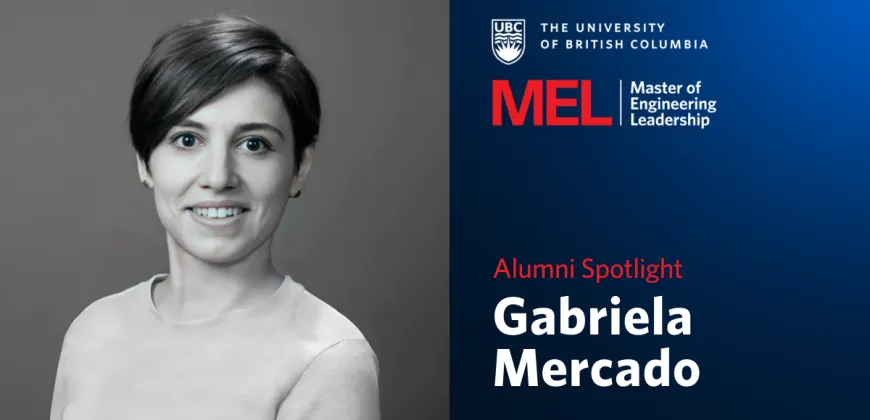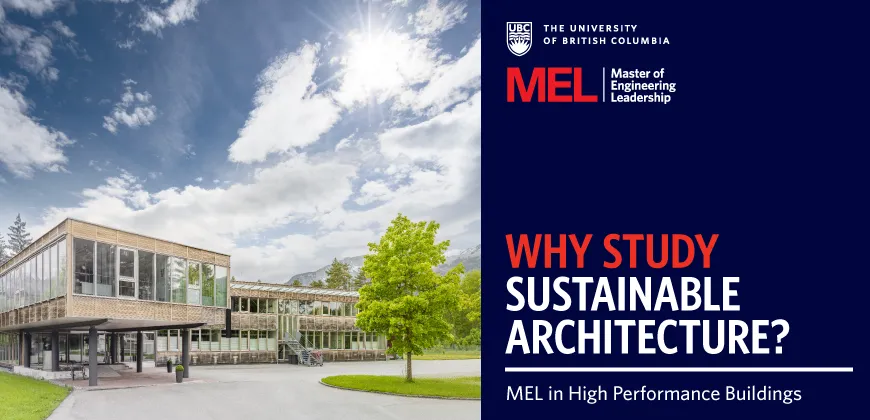Leading firms around the world use an integrated design process to develop high performing, resilient and sustainable buildings.
The MEL in High Performance Buildings adopts this process within its courses, bringing together early- to mid-career engineers and architects who learn how to work across disciplines to integrate their expertise. Students graduate with the skills and knowledge to be part of and lead integrated design teams to come up with innovative solutions.
The MEL in High Performance Buildings is one of the best ways to gain the technical knowledge and leadership skills you need to advance in your profession.
This master’s program integrates concepts in building engineering and architectural engineering. You’ll complete two major capstone projects where you will collaborate with real-world clients to retrofit an existing building energy’s system and design an energy system for a new building.
You will learn how to:
- Navigate the nuances of green building design, from initial planning through to operation
- Apply energy modelling techniques and design innovative building systems
- Successfully manage projects and build teams
- Use data for informed technical and business decisions
You’ll also develop your business skills, learning how to:
- Incorporate principles of sustainability in processes and decisions
- Apply visual analytics for effective analysis and communication
- Successfully manage projects and teams
- Address organizational leadership challenges
- Understand key business functions, including accounting, market analysis, negotiations and contract management, and business case development
- Learn how to support and lead strategic innovations
- Be an effective and persuasive communicator
This interdisciplinary program is taught by leading experts from the Faculty of Applied Science (including those in the School of Engineering and those from the School of Architecture and Landscape Architecture), top industry professionals and renowned faculty from UBC Sauder’s Robert H. Lee Graduate School.
Courses are grounded in project-based learning, enabling you to apply your knowledge to real-world examples and case studies. You will also complete two capstone projects focused on energy modelling and design in collaboration with an industry partner.
You’ll benefit from professional development and career support from our dedicated career strategists. This includes ongoing workshops and professional development opportunities, one-on-one coaching, industry networking events and career fairs exclusive to MEL students.
This comprehensive experience culminates in equipping you with both the credentials and the expertise essential for steering your career toward new horizons.
Prepare for leadership roles where you’ll make bold, impactful decisions with confidence. 71% of our graduates receive promotions, and 78% transition to new career paths. The MEL is not just about gaining knowledge—it’s about transforming into a leader who drives the future of your industry.
Start of program | As of 2024 | |
|---|---|---|
| Architect | → | Project Manager at E3 Eco Group Zero Emissions Building Research Assistant for UBC |
| Assistant Architect | → | Architectural Designer at IBI Group Design Specialist at Jacobs |
| Civil Engineer | → | Building Performance Engineer at RJC |
| Construction Manager | → | Associate Project Manager at VPAC Construction Group |
| Engineering Technician | → | Construction Project Coordinator at Omicron |
| Junior Architect | → | Project Designer at RWA Group Architecture Ltd |
| Planning Engineer | → | Senior Sustainability and Building LCA Consultant at Eight Versa |
| Principal Architect and Engineering Manager | → | Head of Engineering at Ovou |
| Project Engineer | → | Field Coordinator at PCL Construction Project Coordinator at PCL Construction Senior Energy Specialist for the City of Victoria |
| Project Transfer Engineer | → | DesignEngineer at AME Group |
| Operations Engineer | → | Team Technical Manager at EnerSaver Solutions |
| Senior Consultant | → | Building Performance Designer at Omicron |
| Senior Mechanical Engineer | → | Facilities Construction Project Manager at the Provincial Health Services Authority Project Manager at AME Group |
| Senior Project Coordinator | → | Project Manager at Scott Construction Group |
| Senior Sustainability Analyst | → | Project Manager, Sustainability at Above Green |
| Structural Designer | → | Senior Embodied Carbon Manager at Entuitive |
Student Impact
Discover the transformative effects of the High Performance Buildings program on our students. Explore their personal stories, growth, and the skills they've gained through hands-on experiences. See how this program has shaped their educational journey and prepared them for successful careers in their field.










